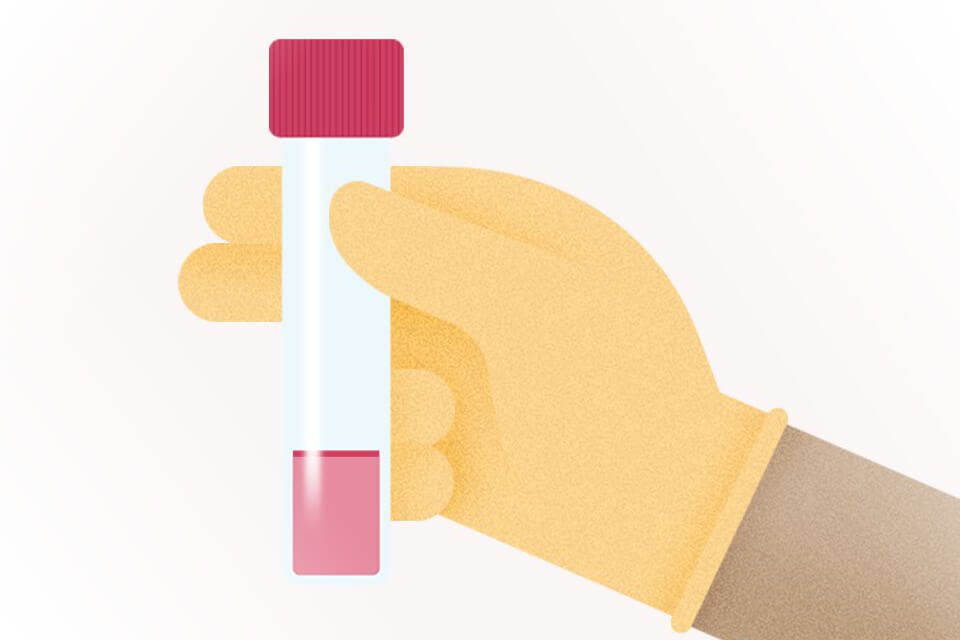What To Do If You’ve Tested Positive
It’s natural to feel worried if you’ve tested positive for a BRCA1, BRCA2, or PALB2 gene mutation. It’s true that these gene mutations can significantly increase your chances of developing breast cancer. However, it’s important to keep in mind that many people who carry such gene mutations never develop breast cancer. Even for those who do, early diagnosis and treatment make it very likely that they will overcome the disease. With early detection, the vast majority of people survive breast cancer and go on to live full, normal lives.

Early Detection Plans
People with BRCA or PALB2 gene mutations have a higher-than-average chance of developing breast cancer, and are more likely to develop it at a younger age. Women with a BRCA1 or BRCA2 mutation can have a 45 – 65% chance of being diagnosed with breast cancer before age 70. For PALB2 mutations, 33% will develop breast cancer by that age.
The good news is that, with this knowledge, you can create a custom early detection plan with your doctor to increase the chances that your breast cancer is detected early. Early detection makes breast cancer far easier to treat. Overall, the five-year relative survival rate for breast cancer detected in the localized stage (there is no sign that the cancer has spread outside of the breast) is 99%.
An early detection plan for someone with a BRCA or PALB2 gene mutation will likely involve more frequent breast cancer screenings starting at a younger age. It may also involve different types of screenings, such as ultrasound or MRI scans. Your doctor can help recommend which screenings you should have, and when you should have them.
Preventative Surgery
Though some consider it extreme, women with high-risk BRCA mutations may choose to undergo preventative surgery to help reduce the risk of developing breast cancer.
A preventative double mastectomy (or bilateral prophylactic mastectomy) is the surgical removal of both breasts before cancer has a chance to develop and/or spread. There are different types of preventative mastectomies; some remove the entire breast, while others leave the skin and nipples intact to aid in breast reconstruction surgery.
Actress and filmmaker Angelina Jolie drew public attention to using surgery to proactively address BRCA gene mutations when she publicly shared her story of undergoing a preventative double mastectomy. She later chose to also have her ovaries and fallopian tubes removed, a procedure known as a preventative salpingo-oophorectomy.
Removing ovaries and fallopian tubes are commonly recommended as a way to reduce breast cancer risk, as well as ovarian cancer risk. For women not diagnosed with either type of cancer, it can be helpful to talk with a genetics counselor about the timing of when to do preventative surgeries. If a woman is still of childbearing age, she likely will want to delay getting her ovaries and fallopian tubes removed until she has finished birthing her family.
Though such preventative or prophylactic surgeries decrease the risk of developing breast cancer by more than 90%, they don’t eliminate the risk entirely. Surgery itself also carries its own set of risks and costs, which need to be carefully considered. Your doctor can help you understand the options and risks and make the choice that is right for you.
BRCA, Gene Mutations, And Breast Cancer Treatment
If someone with a BRCA mutation does develop breast cancer, the treatments used may be different than for people who do not carry the gene mutation.
People with BRCA1 mutations are more likely to develop triple negative breast cancer. Triple negative breast cancer does not respond to hormone therapy or certain drugs. However, chemotherapy may be more effective at treating triple negative cases than it is against other types of cancer.
Breast cancer patients with BRCA1 or BRCA2 mutations are also more likely to later develop a second cancer, either in the same or the opposite breast. Because of this, they may opt for a double mastectomy instead of a single or partial mastectomy (also known as lumpectomy). Removing the healthy breast along with the cancerous one is essentially another form of a preventative mastectomy.
Though research is still ongoing, some findings indicate that certain types of cancer treatment drugs might be more effective than others in patients with BRCA gene mutations.
As always, your doctor can help determine which breast cancer treatments are right for you.
Other Considerations
There are many emotions and decisions that come along with a positive BRCA mutation test result. Feelings can range from fear to anger, sadness, or guilt. There can be questions about whether your children or other family members should be tested. For some, it can affect the decision of whether or not to have children. You may have concerns about passing on the mutated gene to your offspring; some women even choose preventative surgeries that can make it difficult or impossible to have children.
Genetic counselors can help you navigate the waters and understand all the risks, decisions, and emotions involved.
Help is available; you don’t have to go through this alone.



